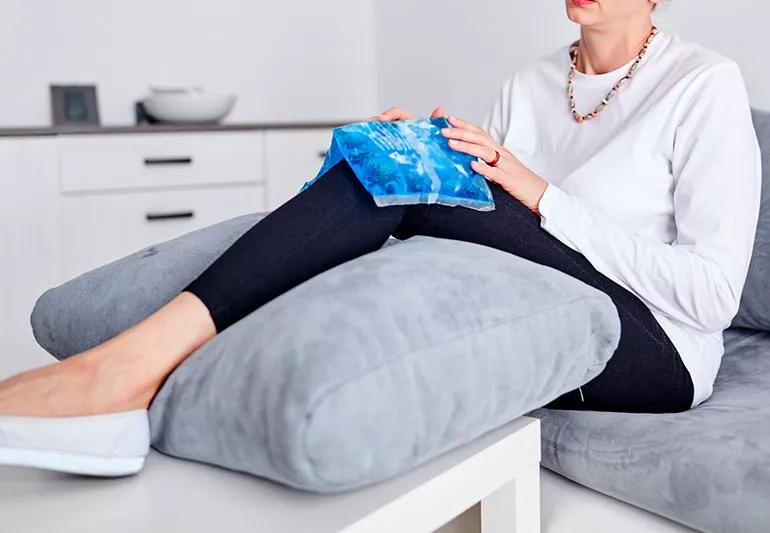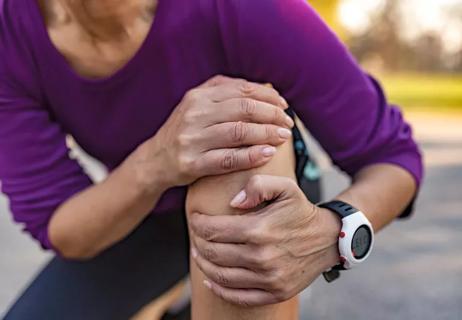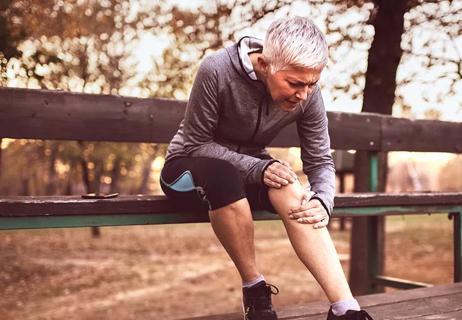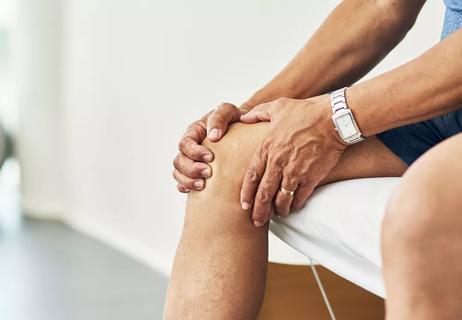Advertisement
How to alleviate pain in your knees

The most common cause of knee pain can hit you in your 30s as easily as it can in your 60s and 70s. Orthopaedic surgeon Robert Nickodem Jr., MD says osteoarthritis, or “wear-and-tear arthritis,” is the most common cause of knee pain – and the most common form of arthritis.
Advertisement
Cleveland Clinic is a non-profit academic medical center. Advertising on our site helps support our mission. We do not endorse non-Cleveland Clinic products or services. Policy
Osteoarthritis includes more than 100 different types of arthritis or joint inflammation and rates of it have been steadily rising year after year.
“Osteoarthritis is like a rusty hinge,” says Dr. Nickodem. “The knee still works, but it creaks.”
Fortunately, osteoarthritis is treatable. You may never be completely pain-free, but you can manage the condition and keep your symptoms under control.
To help alleviate the “creaking” and soothe your knee discomfort, Dr. Nickodem recommends:
How can you tell if you have osteoarthritis?
Advertisement
“If you have pain inside your knee, under your kneecap, especially when kneeling, squatting or going up and down steps, it’s usually wear-and-tear arthritis,” says Dr. Nickodem.
Cartilage, the cushioning between bones, deteriorates throughout life. It can erode more quickly in some people due to injury or genetics. As cartilage thins, your bones begin to rub together, causing pain, swelling and stiffness.
Sometimes the level of pain does not always correlate to the severity of the condition.
If your pain and swelling are getting worse and you can no longer put weight on your knee, see your doctor. A simple X-ray can show if there is osteoarthritis and, if needed, an MRI scan can check for meniscal tears or loose chips of cartilage.
Arthroscopic surgery can sometimes remove loose cartilage. Partial or total knee replacements are other surgical options, especially for those who can no longer stay as active as they’d like. Sometimes computer assistance is used for some complicated knee replacements.
“Surgery is a last resort, though,” says Dr. Nickodem. “It’s something to consider when nonoperative treatments aren’t helping.”
Advertisement
Learn more about our editorial process.
Advertisement

Arthritic knees can benefit from bridging, mini squats, balancing exercises and other stretches

Work on building strength and flexibility to keep the joints moving

Don't let these aches and pains set you back

Consider these common reasons for knee pain

Understanding your options

Non-surgical ways to help you function better

Vitamin D is an umbrella term for both D2 and D3 — both help keep your bones and immune system strong

If you’re feeling short of breath, sleep can be tough — propping yourself up or sleeping on your side may help

If you fear the unknown or find yourself needing reassurance often, you may identify with this attachment style

If you’re looking to boost your gut health, it’s better to get fiber from whole foods